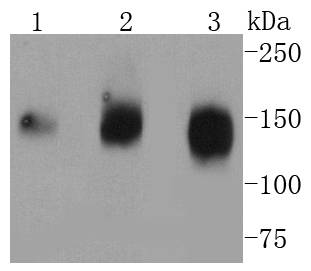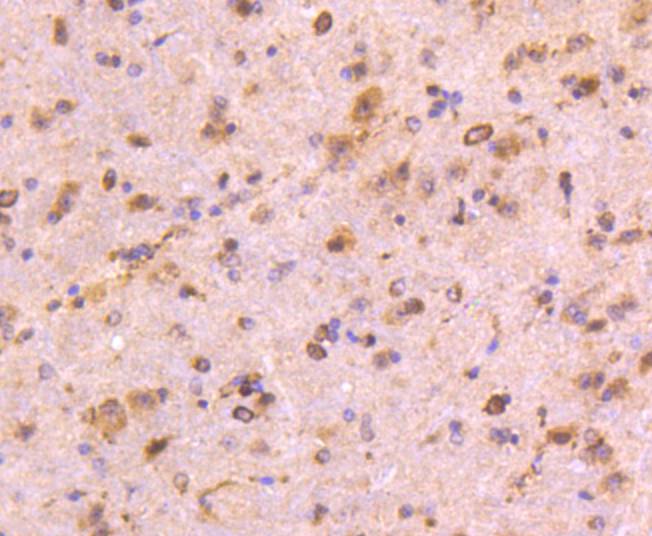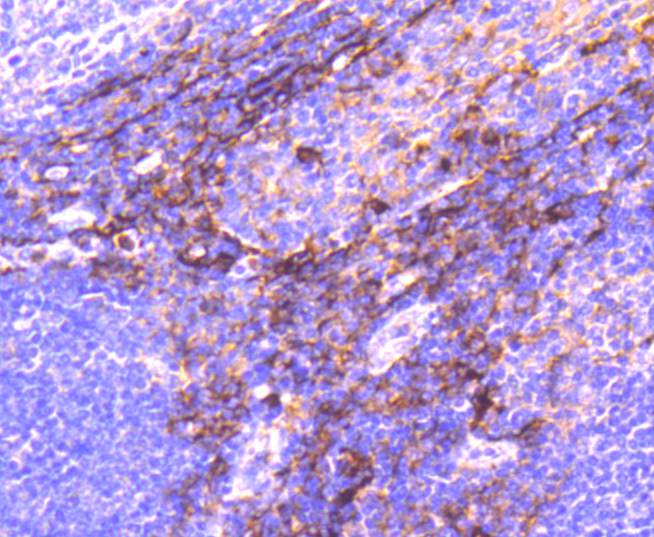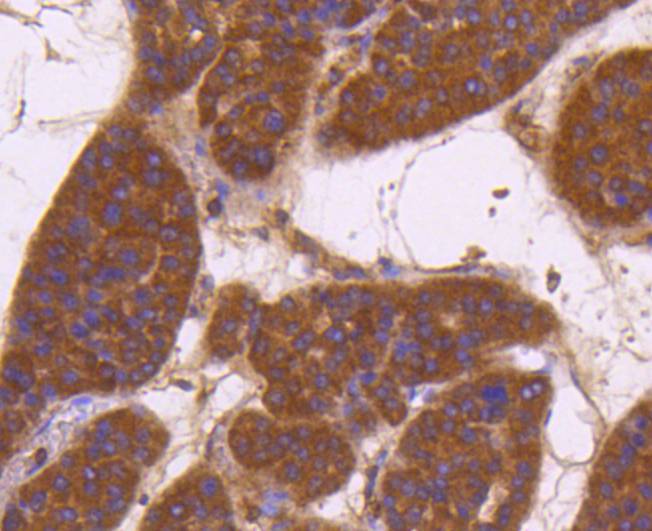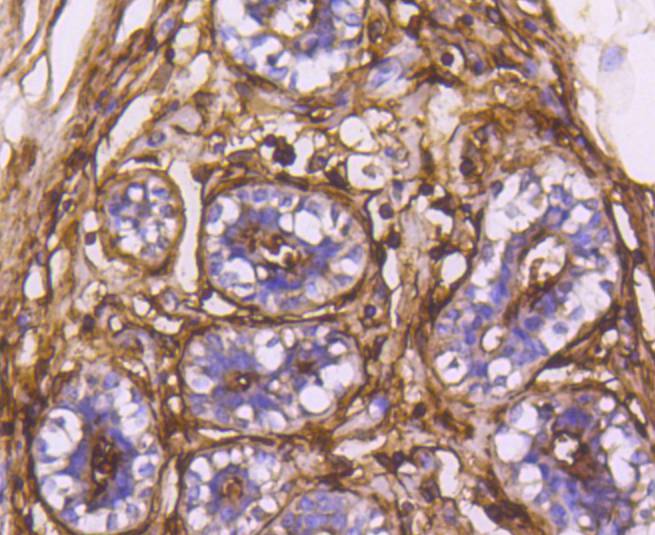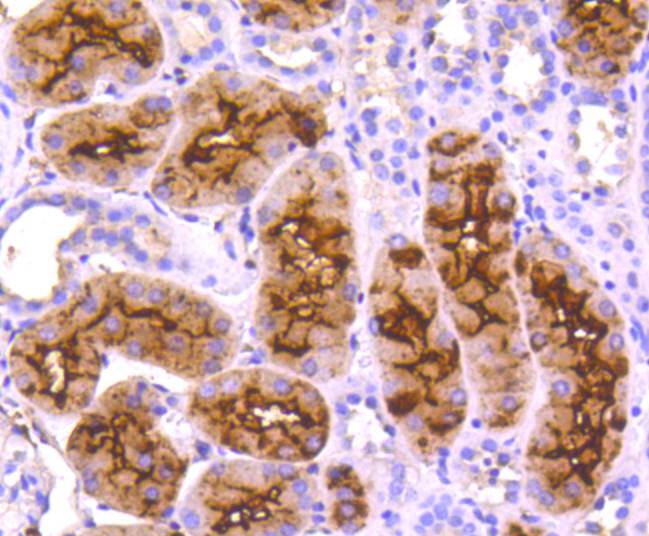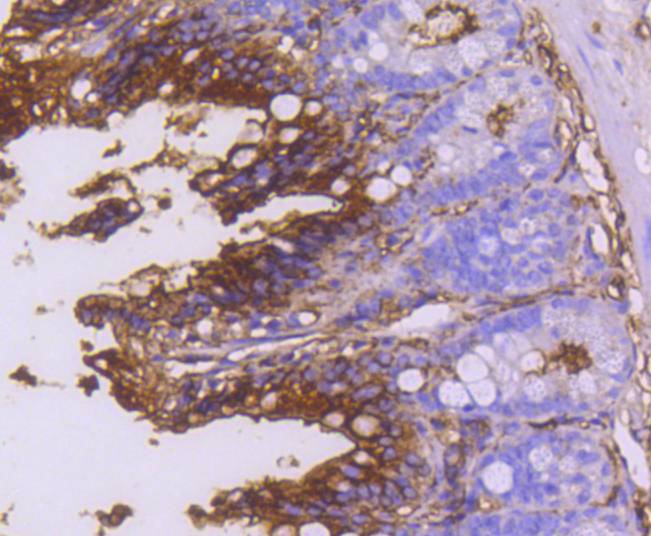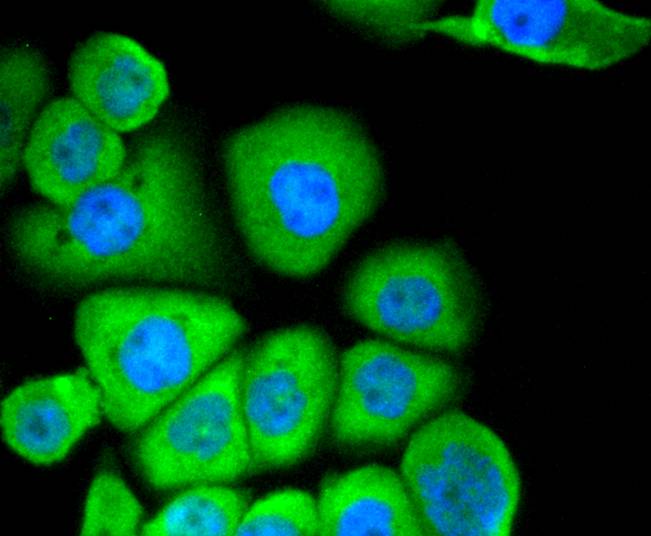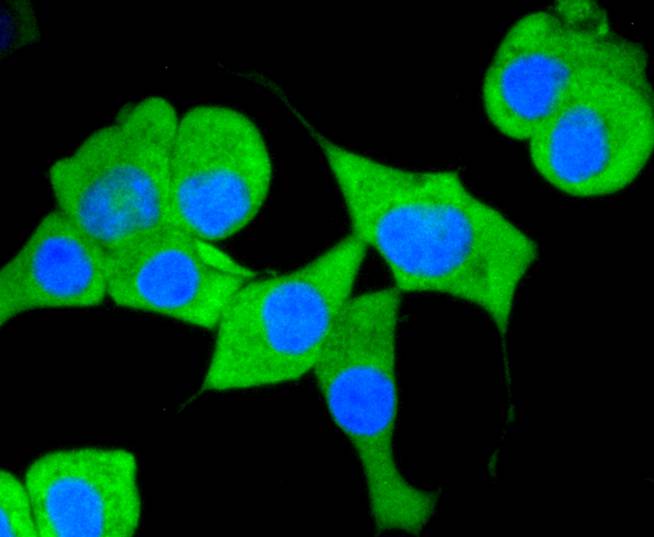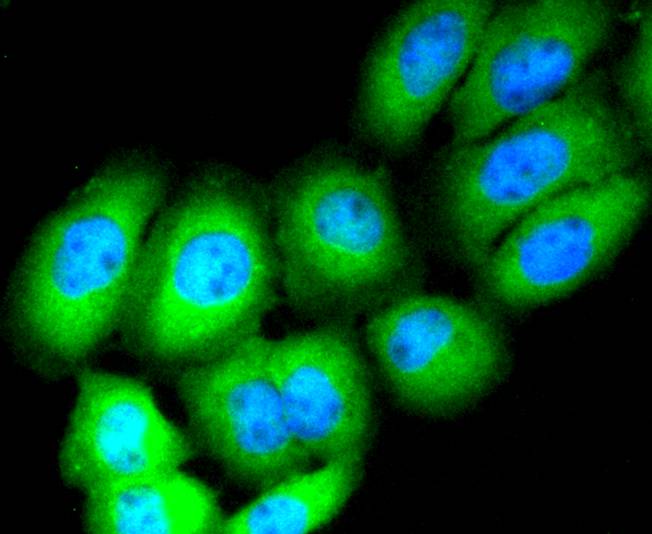CD13, or aminopeptidase N, is a type II transmembrane glycoprotein that is expressed on most cells of Myeloid origin, including monocytes, basophils, eosinophils, neutrophils and Myeloid leukemias. CD13 is also found on certain epithelial cells, fibroblasts and osteoclasts. CD13 acts as a zinc-binding metalloprotease that plays a role in digestion and may function in the inactivation of some regulatory peptides such as enkephalins. CD13 may play a role in the invasion of cancer cells by enhancing their invasive capacity and metastatic behavior. The activity of CD13 can be inactivated using specific inhibitors that evoke apoptosis of CD13-positive cancer cells. Basic fibroblast growth factor (bFGF) expression upregulates CD13 expression in human melanoma cells by activating both the Myeloid and the epithelial CD13 promoter.

